 Loading... Please wait...
Loading... Please wait...Categories
Our Newsletter
- Home
- Kona Processing
Kona Processing
These photos show the different stages of coffee processing. After the beans are handpicked and pulped, they are left overnight to ferment. The next morning the beans are rinsed and then spread out on a drying floor to be sun dried. If the weather doesn't cooperate and isn't sunny, the beans can be dried using either a gas, drum dryer, or other drying equipment. The coffee is dried to about an 10% moisture level to avoid any mold growth. The coffee beans are then bagged in the parchment state which are stored in air conditioned comfort and held at a constant 70 degrees F temperature. The next process is to remove the parchment from the beans. This process is called drymilling, or green milling. The beans are fed into a machine that gently rolls the beans and the parchment falls off. At this stage, the beans can be graded, or separated into the various sizes of coffee beans. The biggest beans are called Extra Fancy, a little smaller are Fancy beans, followed by smaller yet #1, Select, and the smallest beans being Prime beans. Peaberry beans are separated into Peaberry #1, or #2. The beans are now called green beans. Freshly milled green beans have a blue-green appearance and smell a little like peanuts. It isn't until the green beans are roasted that the unique flavors of the coffee beans fill the air with a heavenly aroma. The beans are bagged immediately, and sealed after roasting to insure you get the freshest coffee delivered to you.
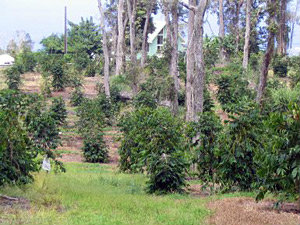 |
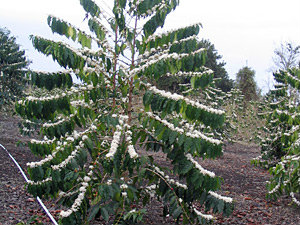 |
| Kona Coffee Trees | Kona Coffee Blossoms |
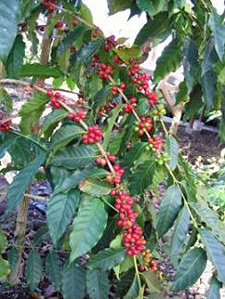 |
 |
| Kona Coffee Cherries | One of our helpers picking ripe coffee beans |
 |
 |
| A beautiful sight after a hard day's work! | Naturally fertilized coffee trees |
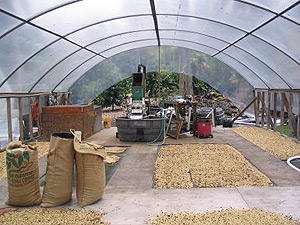 |
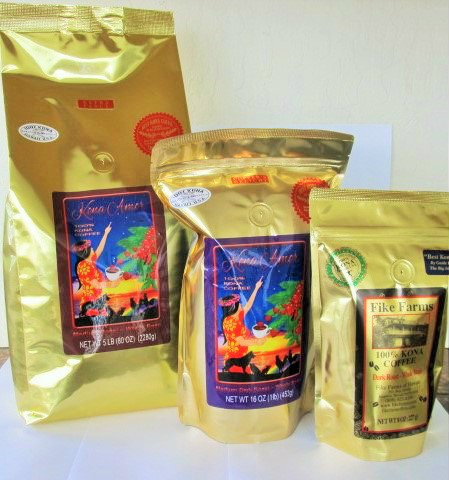 |
| Drying Floor | Coffee Bags |

